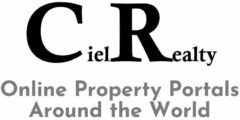Transparency in Real Estate, Accommodation, and Rental Businesses

The Essence of Transparency in Real Estate, Accommodation, and Rental Businesses
In the dynamic and ever-evolving terrain of real estate, accommodation, and rental enterprises, transparency in Real Estate, Accommodation, and Rental Businesses as the foundational cornerstone fostering trust, credibility, and customer satisfaction. It encompasses the ethical and essential practice of openly divulging comprehensive information, delineating processes, and detailing financial dealings inherent in property transactions, lodging services, and rental agreements.
Understanding Business Transparency in Real Estate and Accommodation:
Business transparency in this context refers to the practice of providing comprehensive, accessible, and honest information to clients, tenants, and potential buyers. It involves transparent communication, disclosure of pertinent details, and the fair and ethical handling of transactions.
Why is Business Transparency Important in the Real Estate and Accommodation/Lodging Industry?
Business transparency is essential in the real estate and accommodation/lodging industry for several reasons:
- It builds trust with customers. When customers know that they can trust a business, they are more likely to do business with them.
- It fosters long-term relationships. Transparency can help to create strong relationships between businesses and their clients, which can lead to repeat business and referrals.
- It can help to prevent disputes. By being transparent about their practices, businesses can help to avoid misunderstandings and disputes with their clients.
- It can improve a company’s reputation. A company that is known for being transparent is more likely to be seen as a trustworthy and reputable organization.
Examples Illustrating Transparency in real estate businesses:
In the real estate and accommodation/lodging industry, business transparency is crucial for building trust with customers and fostering long-term relationships. When businesses are open and honest about their practices, it demonstrates that they have nothing to hide and that they are committed to providing a positive experience for their clients.
There are many ways in which businesses in the real estate and accommodation/lodging industry can demonstrate transparency. Some common examples include:
- Clear Fee Structures: A rental business displaying a transparent breakdown of all fees and charges, including additional costs for utilities, maintenance, or services, demonstrates transparency. Clarity on expenses ensures tenants understand the total costs associated with their stay.
- Detailed Property Information: Real estate listings that offer comprehensive details about a property, including its history, amenities, square footage, and any known issues, exhibit transparency. Providing accurate and thorough information empowers potential buyers or renters to make informed decisions.
- Open Rental Agreements: Accommodation providers or landlords maintaining transparent rental agreements that clearly define terms, conditions, and rental policies foster trust. This clarity helps renters comprehend their responsibilities and rights during their stay.
- Truthful Marketing and Representation: Real estate entities presenting properties truthfully and accurately, without exaggeration or misrepresentation, uphold transparency. Honest marketing prevents misunderstandings and builds credibility with buyers or tenants.
Embracing business transparency in real estate, lodging, and rental ventures goes beyond legal obligations—it nurtures trust, encourages fair dealings, and fortifies relationships between service providers and customers. Ultimately, it contributes to the sustainable growth and reputation of these businesses in the competitive market.
How to Enhance Business Transparency in the Real Estate and Accommodation/Lodging Industry
There are a number of steps that businesses in the real estate and accommodation/lodging industry can take to enhance their transparency:
- Develop a clear and consistent communication policy. This policy should outline how the business will communicate with its clients, including what information will be shared and how often.
- Train employees on the importance of transparency. Employees should be aware of the company’s commitment to transparency and how they can help to uphold that commitment.
- Use multiple channels to communicate with clients. This could include email, social media, a company website, and face-to-face meetings.
- Be proactive in disclosing information. Businesses should not wait for customers to ask for information; they should proactively share information about their properties, services, and policies.
- Seek feedback from customers. Businesses should encourage customers to provide feedback and use that feedback to improve their services.
By embracing transparency, businesses in the real estate and accommodation/lodging industry can build trust with their customers, strengthen relationships, and create a positive reputation. In today’s competitive marketplace, transparency is not just a good idea, it’s a necessity.
Here are some additional examples of how businesses in the real estate and accommodation/lodging industry can demonstrate transparency:
- Real estate agents: Real estate agents can be transparent by providing their clients with clear and concise information about the properties they are listing, including the asking price, square footage, number of bedrooms and bathrooms, and any special features. They can also be transparent by disclosing any known issues with a property, such as repairs that need to be made or potential hazards.
- Property managers: Property managers can be transparent by providing their tenants with clear and concise information about the lease terms, including the monthly rent, security deposit, and any pet fees or other additional charges. They can also be transparent by providing tenants with regular updates on the property, such as when repairs are being made or when common areas are being cleaned.
- Hotels and other lodging providers: Hotels and other lodging providers can be transparent by providing their guests with clear and concise information about their rates, amenities, and policies. They can also be transparent by disclosing any known issues with a room, such as a noisy neighbor or a malfunctioning appliance.
By following these examples, businesses in the real estate and accommodation/lodging industry can demonstrate their commitment to transparency and build trust with their customers. The transparency in real estate, accommodation, and rental business empowers all involved parties by ensuring clarity, fairness, and accountability in every transaction, thereby building a foundation of trust and satisfaction in the industry.
Transparency is essential in the real estate, accommodation, and rental businesses. Businesses that are transparent are more likely to build trust with consumers, reduce risk, and foster open communication. By following the tips in this article, businesses can be more transparent and improve their customer satisfaction.
We hope this article was helpful. Please let us know if you have any questions.
Photo credit: IamNotPerfect via Pixabay





